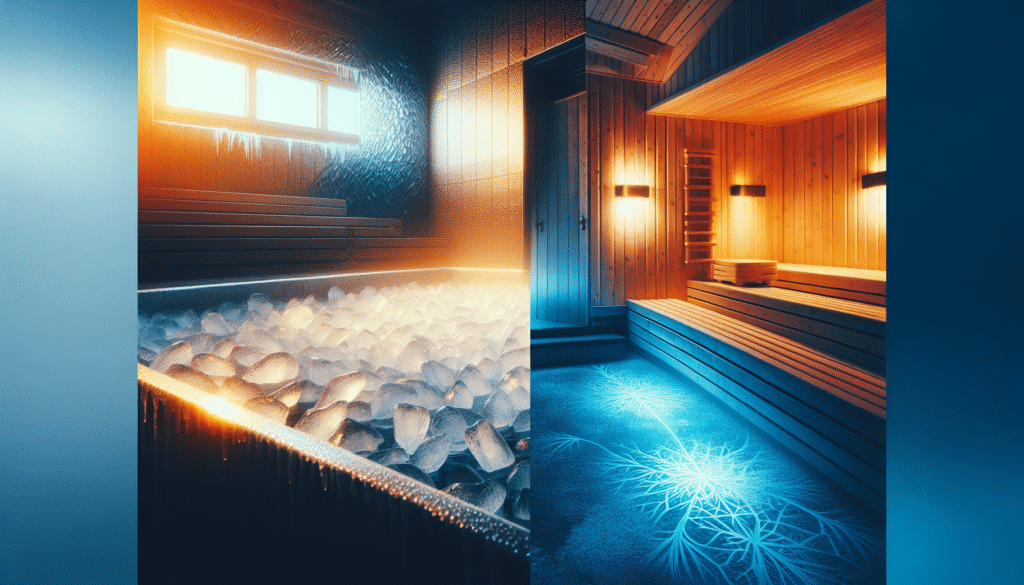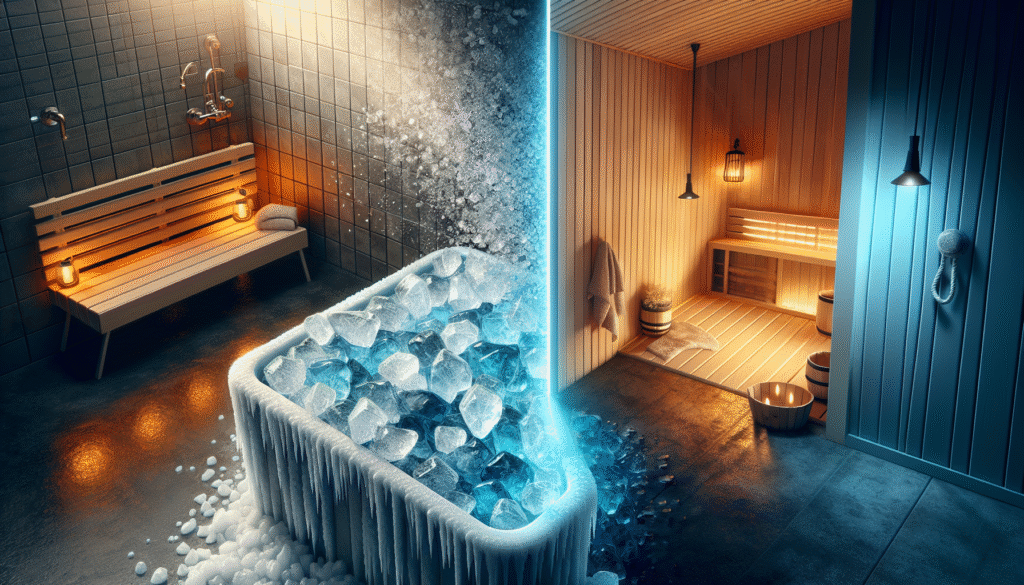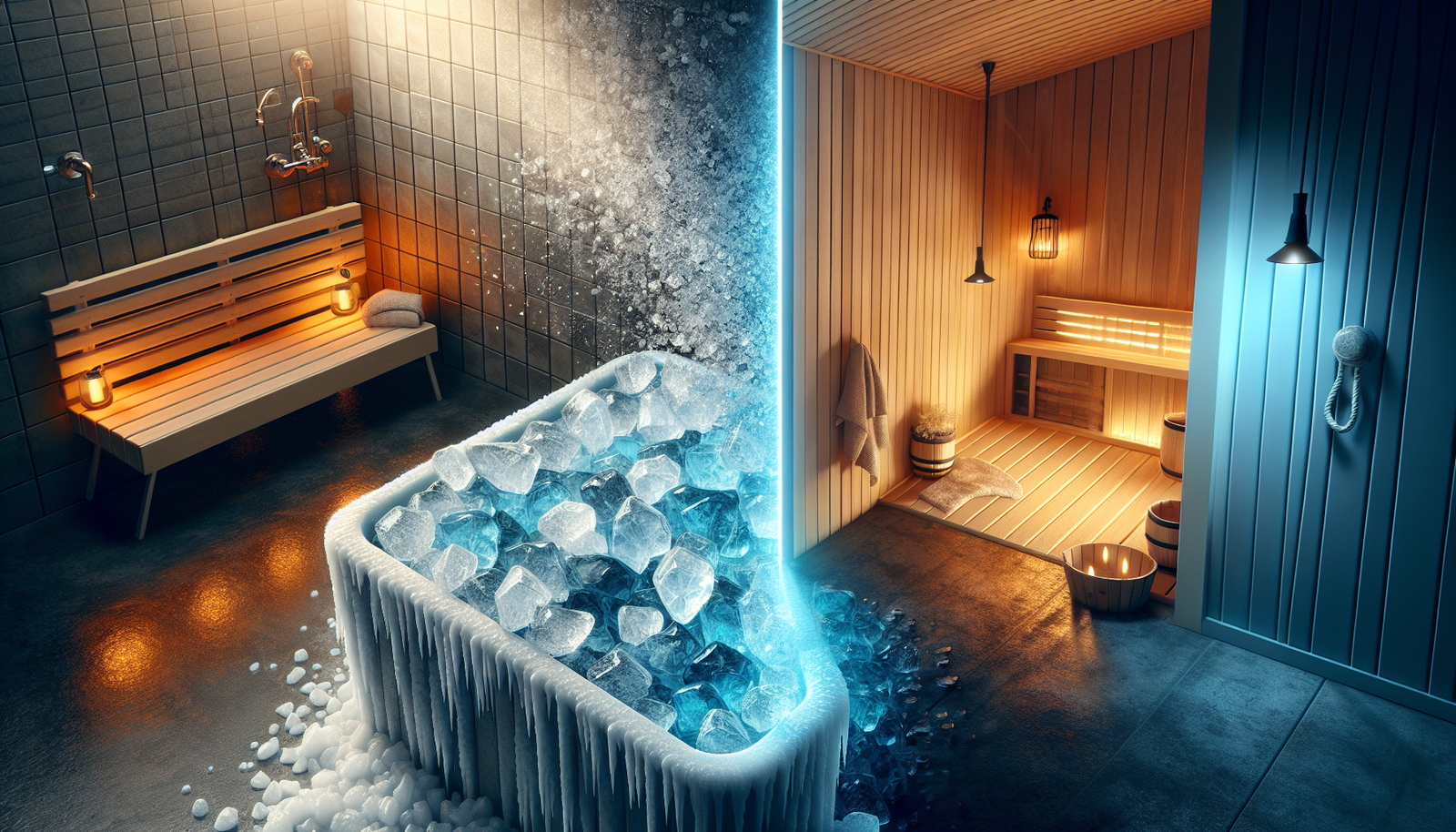What do you think about the temperature extremes when it comes to wellness? Are you someone who craves the refreshing chill of cold plunging or are you more inclined to bask in the soothing heat of a sauna? Both practices have gained incredible popularity in recent years, and if you’re wondering how they stack up against each other, you’ve come to the right place. Let’s break down the health benefits of cold plunging and sauna use, so you can make an informed choice that suits your lifestyle.
Understanding Cold Plunging
Cold plunging might sound intense, but it’s really about exposing your body to cold temperatures for a short period. Imagine stepping into a tub of icy-cold water or immersing yourself in a brisk river. It can feel like a shock to the system, but supporters of this practice swear by its invigorating effects.
The Science Behind Cold Plunging
When you take the plunge into cold water, your body undergoes a series of physiological responses. Here are some key points to consider:
-
Vasoconstriction: Cold exposure causes blood vessels to constrict, which helps reduce inflammation and swelling. If you’ve ever had an injury, you might have heard that ice reduces swelling. This principle holds true here too.
-
Endorphin Release: The sudden shock of cold activates your sympathetic nervous system, which can lead to a rush of endorphins, often dubbed the “feel-good” hormones. This can create an exhilarating sense of well-being.
-
Improved Circulation: Once you exit the cold, your body works to warm itself up, leading to increased blood flow. This enhanced circulation works wonders for recovery and muscle soreness.
Cold Plunging Benefits
Cold plunging has a slew of benefits, making it an attractive wellness routine for many. Here’s a closer look:
-
Enhanced Recovery: After a tough workout, cold plunging can help reduce muscle soreness and speed up healing. It’s a go-to practice for athletes aiming for quick recovery between sessions.
-
Boosted Mood: As mentioned, that rush of endorphins can help alleviate anxiety and boost your overall mood. It serves as a natural pick-me-up whenever you need it.
-
Improved Sleep Quality: Cold exposure can trigger increased production of melatonin, the hormone that regulates sleep. Many enthusiasts claim improved sleep quality after regular cold exposure.
-
Strengthening Your Immune System: Regular cold plunging has been linked to an increase in white blood cell count, which is essential for a resilient immune system.

The Allure of the Sauna Experience
On the flip side, a sauna offers a completely different atmosphere. Imagine a warm, dimly-lit room filled with steam, where relaxation envelopes you like a comforting blanket. Saunas have been around for centuries and are celebrated in various cultures for their therapeutic effects.
The Science Behind Saunas
The heat in a sauna brings about a whole different set of benefits for your body. Let’s unpack what happens when you spend time in this enjoyable environment:
-
Heat Shock Proteins: Exposure to heat triggers the production of heat shock proteins that help your cells cope with stress. These proteins have been shown to have protective qualities, which may enhance cellular repair.
-
Increased Blood Flow: Sauna heat causes blood vessels to dilate, boosting circulation much like what occurs after a cold plunge but in a distinctly comfortable way.
-
Detoxification: Saunas induce sweating, and while it’s essential to stay hydrated, this sweating is a natural way for your body to detoxify and eliminate toxins.
Sauna Benefits
Sauna sessions come with an array of health benefits that make them a worthy addition to your wellness routine. Here’s what you can expect:
-
Relaxation and Stress Relief: The calming environment of a sauna provides a moment to unwind from a hectic day. The heat can soothe your muscles and ease tension, enhancing your overall sense of relaxation.
-
Improved Cardiovascular Health: Regular sauna use can potentially lower blood pressure and improve heart function, contributing to better cardiovascular health over time.
-
Enhanced Skin Health: The sweating induced by sauna sessions can help cleanse your pores and may even give your skin a healthy glow.
-
Pain Relief: Individuals suffering from chronic pain conditions, such as arthritis, often find relief through sauna use due to the heat’s ability to soothe sore joints and muscles.

Comparing Cold Plunging and Sauna Use
At this point, you might be wondering: which is better for your health, cold plunging or sauna? Well, it’s not a straightforward comparison because both methods offer unique advantages. Below is a side-by-side look at their primary benefits to help you choose what might work best for you.
| Health Aspect | Cold Plunging | Sauna |
|---|---|---|
| Recovery | Reduces muscle soreness and inflammation | Soothes muscles and enhances relaxation |
| Mood Boost | Increases endorphin levels | Enhances relaxation and reduces stress |
| Sleep Quality | Can improve sleep through melatonin | Promotes relaxation, aiding better sleep |
| Immune System | Increases white blood cell count | Stimulates detoxification through sweat |
| Cardiovascular Health | Moderate vascular response | Enhances circulation with vasodilation |
| Skin Health | Minimal benefits | Improves skin tone through sweating |
| Pain Relief | Reduces inflammation | Provides heat relief for chronic pain |
Factors to Consider
When choosing between cold plunging and sauna use, keep in mind the following:
-
Personal Preference: If you prefer the invigorating shock of cold, then cold plunging might be your jam. If relaxation and soothing warmth sound more appealing, you might lean towards sauna sessions.
-
Health Conditions: Always consider any pre-existing health concerns. For example, if you have cardiovascular issues, heat exposure might be a concern, so consult with your healthcare provider.
-
Intensity of Your Workout: If your training is intense and leaves you with sore muscles, you might find cold plunging more beneficial for recovery. On the contrary, if you’re looking for relaxation post-workout, a sauna might do the trick.
-
Combination Approach: Many wellness enthusiasts swear by alternating between both methods. They enjoy the invigorating boost of cold plunging followed by the tranquil heat of the sauna.

Practical Tips for Using Cold Plunges
Thinking about incorporating cold plunging into your routine? Here’s how to make the most of it:
Start Slow
If you’re new to cold plunging, don’t dive in—literally. Start with shorter exposure times (a minute or two) and gradually build up to longer sessions as your body adapts.
Get a Proper Setup
Ensure you have access to a clean, safe cold plunge. It could be at a gym or even at home if you have the space for a cold water tub.
Breathe and Center Yourself
When you first experience that cold shock, focus on your breathing. Deep, controlled breaths can help calm your mind and body, allowing you to get used to the temperature more easily.
Post-Plunge Care
After you’re done, have a warm towel or blanket ready. This allows for a nice transition back to a normal temperature and enhances the recovery process.

Practical Tips for Using Saunas
If sauna sessions sound more your speed, here are some pointers:
Stay Hydrated
Saunas can make you sweat, so take it easy on your hydration. Always drink water before and after your session to keep your body well-hydrated.
Timing Matters
Most recommendations suggest around 15-20 minutes in a sauna is ideal. Don’t overstay; listen to your body. If it starts feeling too hot, don’t hesitate to take a break.
Relax and Unwind
Use your sauna time for relaxation. Try not to bring your phone or distractions in; instead, soak in the warmth and allow your mind to detach from daily stressors.
Cool Down
Take a moment to cool off after your sauna session. A cool shower can help bring your body temperature back to normal and maximize the health benefits of your sauna experience.

Listening to Your Body
Ultimately, the choice between cold plunging and sauna use is something deeply personal. You might find both have different contributions to your well-being on various days. If you’re feeling sore and in need of recovery, go for a cold plunge. If you’re experiencing stress and want to unwind, the sauna may be calling your name.
Conclusion
So, cold plunging or sauna: which will it be for you? Each offers unique health benefits that can enhance your physical and mental well-being. Whether you decide to embrace the chill of cold water or the warmth of a sauna, remember to honor your body and its needs. After all, the goal is to feel good in whatever method you choose. As you experiment and find what fits your lifestyle best, you’ll likely discover a new level of wellness that resonates well with you.

